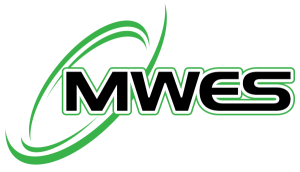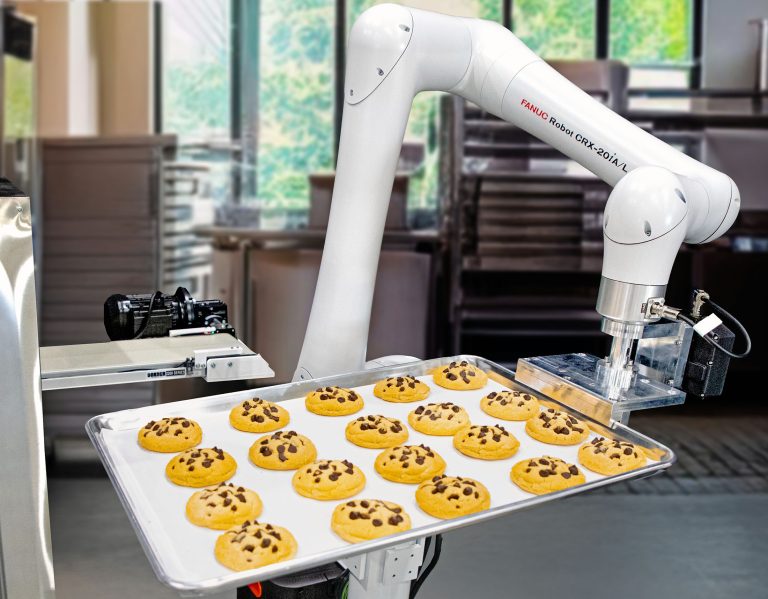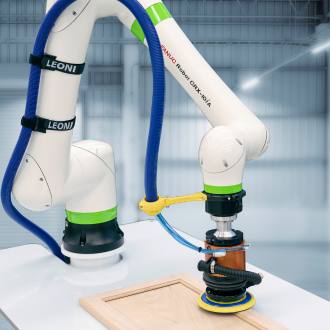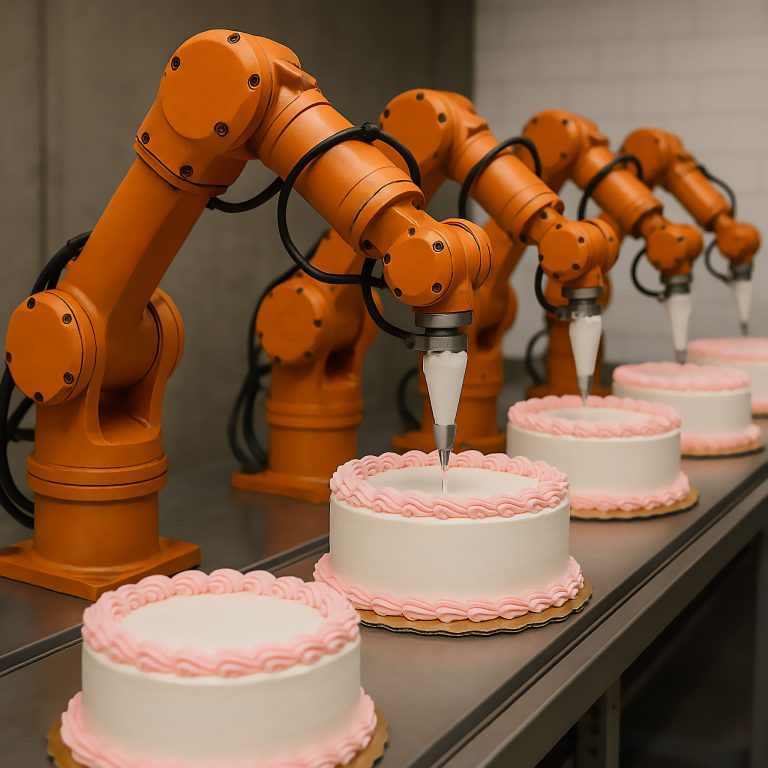On average about 48 million people get sick each year from foodborne diseases, according to data from the Centers for Disease Control and Prevention (CDC). This is a significant public health burden that can be prevented. To bring those numbers down, maintaining the highest standards of safety and hygiene in the food and beverage production industry is paramount.
Food safety regulations are becoming increasingly stringent worldwide, adding to the financial burden placed on food producers. But time and time again, the human element poses the greatest contamination risk in food production lines. This can lead to product recalls, legal problems and a loss of consumer confidence.
To combat these shortcomings, robot automation is gaining traction with food producers and recognition by the FDA and USDA. The shift toward automation in food handling and production is driven by cleanliness, speed, throughput and traceability.
Robots reduce contamination by minimizing human contact
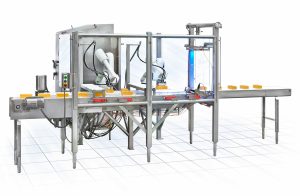
One of the primary ways robots enhance food safety is by minimizing human contact. Despite following stringent hygiene protocols, human workers can inadvertently introduce contaminants through touch, breath, hair or even tiny particulates from clothing. Specialty food-grade robots eliminate this risk. Robots cleanly handle processed and raw food products limiting the risk of bacterial or viral contamination, ensuring a safer end product for consumers. Greases used in the joints and motors are NSF-registered food-grade hygienic lubricants that are USDA-rated for H1 incidental food contact. Any incidental food contact is completely harmless to humans.
Robots bring precision & speed to food processing
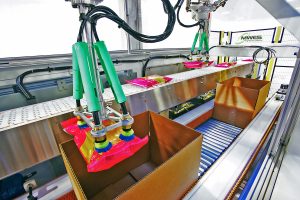
Most foods require that production facilities have climate-controlled environments to avoid spoilage. Any processes such as packing, wrapping, forming or handling need to be done quickly and efficiently. Additionally, exact measurements and uniform processing are critical for product consistency which can be difficult to do with a fast-moving manual assembly line. Robots can provide the throughput and consistency needed to reduce the risk of product spoilage while ensuring that each product meets stringent USDA and FDA food quality safety standards.
Automation can be easily washed down & sanitized
Food-grade robots are designed with heavy cleaning protocols in mind. Many food-rated robots have stainless steel components that are easy to sanitize and are resistant to corrosion and bacterial growth. These robots also meet international waterproofing standards that include IP54, IP67 or IP69K.
Robotic systems can be integrated with automated clean-in-place (CIP) systems that routinely sanitize all surfaces without damaging the equipment. This ensures that robots remain clean and sterile throughout production, providing an extra layer of safety in food handling processes. Robots’ ability to function in sterile conditions makes them ideal for handling sensitive food products.
Real-time monitoring & quality control
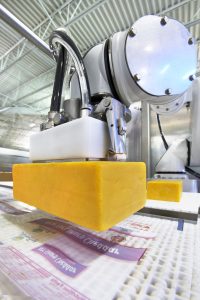
Equipped with AI-based vision systems and X-ray scanners, automation systems can look for impurities, foreign objects and deviations from quality standards in real time with incredible accuracy. This allows for immediate corrective actions, ensuring that only safe and high-quality products leave the facility. The data collected by these systems also help in the continuous improvement of food safety protocols. To ensure production traceability, each action performed by a robot is tracked and recorded, so issues can be quickly identified and addressed, further bolstering food safety compliance and consumer confidence.
MWES has automation solutions to advance food processing
Integrating robots into food manufacturing is a game-changer for hygiene and safety. By minimizing human contact, ensuring precision and consistency, implementing cleaning protocols, operating in sterile environments, and performing real-time monitoring – robots are setting a new standard in food safety and production.
The shift to robotics will reduce the need for costly recalls and waste due to product contamination. In time, robotic automation will contribute to a significant return on investment and cost savings for food manufacturers by reducing downtime and increasing production rates.
Midwest Engineered Systems has for decades helped food and beverage producers integrate food-grade robotic automation into their food and beverage production lines. We have produced high-quality hygienic and efficient solutions for case packing, palletizing, order kitting, forming and wrapping, assembly and more.
If cleanliness and throughput have been a problem for your food handling production lines, then contact us today to get a quote. We expect robots to play an even more significant role in ensuring that our food is safe, high-quality and hygienic for generations to come!
